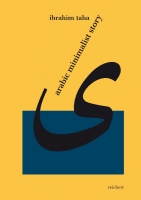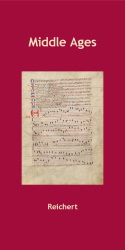Titelsuche
Arabic Minimalist Story
Genre, Politics and Poetics in the Self-colonial Era
2009
17,0 x 24,0 cm, 184 S., Gebunden
ISBN: 9783895006661
17,0 x 24,0 cm, 184 S., Gebunden
49,00 €
ISBN: 9783895006661
Kurze Beschreibung
One of the major aims of this book is to characterize the Arabic minimalist story as a newly established genre of narrative fiction that exploits a host of “austere” techniques in order to present a variety of socio-political issues. Believing in “less is more”, Arab minimalist writers hope to generate an extreme effect by relating and saying several things with a minimum of words. The unique powerful effect of inspiring its readers to fight and resist that is attributed to the Arabic minimalist story stems paradoxically from its concentrated, focal, sudden, and immediate presentation.Ausführliche Beschreibung
This unique study aims at characterizing the Arabic minimalist story as a new genre of narrative fiction that exploits many austere devices of post-modern strategies to exhibit a variety of socio-political and ideological matters that affect the fundamental needs of the common people in all Arab states. One of the major aims of this study is to expose the reader to the particularity of the Arabic minimalist story on both levels, thematic and aesthetic. On the thematic level, political, national and citizenship questions are at the top of the genre’s agenda. Other topics, such as feminism and economic conditions, also attract significant interest among minimalist writers in all Arab countries. However, Arab minimalist writers are mostly preoccupied by national and political issues related to their quest for freedom, free speech, and proper interrelations between common people and rulers. In reading Arabic minimalist fiction, we come to recognize that the political crisis in Arab states has been among the uppermost concerns of Arab minimalist writers for the last three decades. On the aesthetic/poetic level, Arabic minimalist story is mostly applied to identify texts that are pared down to their most essential features and fundamental components. One of the departure points of the minimalist story in modern Arabic fiction is ‘blurring transparency’, which challenges the reader and his ability to go beyond the surface, namely to cross the verbal text to unseen texts. Since the minimalist story goes immediately to the point of the text, implicitly or explicitly, it generates a deep sense of powerful product. This is apparently the very reason why the minimalist story is particularly apt for devices that forcefully move the reader, such as satire, sarcasm, the absurd, irony, the grotesque, caricature, paradox, and the like. Unlike long genres of narrative fiction, which narrate a piece of reality or history, the minimalist story touches directly the core of the experience that the writer wishes to portray. Unlike long narrative genres, of well-explained events and detailed descriptions, the unique powerful effect of the minimalist story stems from its concentrated, focal and sudden presentation. Fighting and resistance are well suited to the minimalist story, which does not scatter the reader’s attention to side issues. The immediacy and shortness of minimalist fiction are apparently the very features needed to reach the extreme of challenge and resistance.Autoreninfo
Ibrahim TahaBorn in Israel, Ph.D. in comparative literature from The Hebrew University of Jerusalem in 1994. Teaching at many colleges and universities: University of Haifa (Israel), The Academic Arab College (Israel), Oranim Academic College (Israel), The College of Sakhnin for Teacher Education (Israel), University of Uppsala (Sweden), and University of Heidelberg (Germany).
Since 2003/2004 – Present day, member of the committee of the M.A. and Ph.D. studies in the Department of Arabic Language and Literature, University of Haifa.
Reihentext
Diese Reihe stellt innovative Arbeiten zu den nahöstlichen Literaturen in ihren verschiedenen Epochen und Gattungen vor. Sie versteht sich nicht ausschließlich als ein Forum für Orientwissenschaftler, sondern möchte auch Komparatisten, Literaturwissenschaftlern und einer interessierten Öffentlichkeit Einblicke in das breite Spektrum gegenwärtig produzierter und rezipierter Literatur des Nahen Ostens bieten.
Denn die Herausgeberinnen, Autorinnen und Autoren wollen den Titel der Reihe programmatisch verstanden wissen. Sie gehen von einem Begriff der Weltliteratur aus, der die orientalischen Literaturen nicht nur statisch einbegreift, sondern sie in ein Kulturregionen und Nationalsprachen übergreifendes Spannungsfeld stellt, dessen Dynamik erst im interdisziplinären Austausch erfasst werden kann. Sie gehen ferner davon aus, dass Literaturen in vielfacher Weise intertextuell geprägt sind, dass sie Lektüren verschiedenster vorausgehender Texte darstellen und daher erst in ihrem „lokalen historischen Kontext“ ihren Reiz als Ausdruck einer regional geprägten Ästhetik entfalten können. Die Reihe versucht so, einer neuen Sensibilität für mythische, archetypische, aber auch historische Subtexte in der nahöstlichen Literatur Bahn zu brechen, sie aber gleichzeitig als wichtigen Ausdruck einer globalen kulturellen Mobilität sichtbar zu machen.




 Vorwort
Vorwort

 Neuerscheinungen 2023/2024
Neuerscheinungen 2023/2024
 Gesamtverzeichnis 2023/2024
Gesamtverzeichnis 2023/2024
 Katalog Oriental Studies & Linguistics
Katalog Oriental Studies & Linguistics
 Mittelalter
Mittelalter
 Deutsche Inschriften
Deutsche Inschriften
 Musiktherapie
Musiktherapie
 Literaturen im Kontext
Literaturen im Kontext